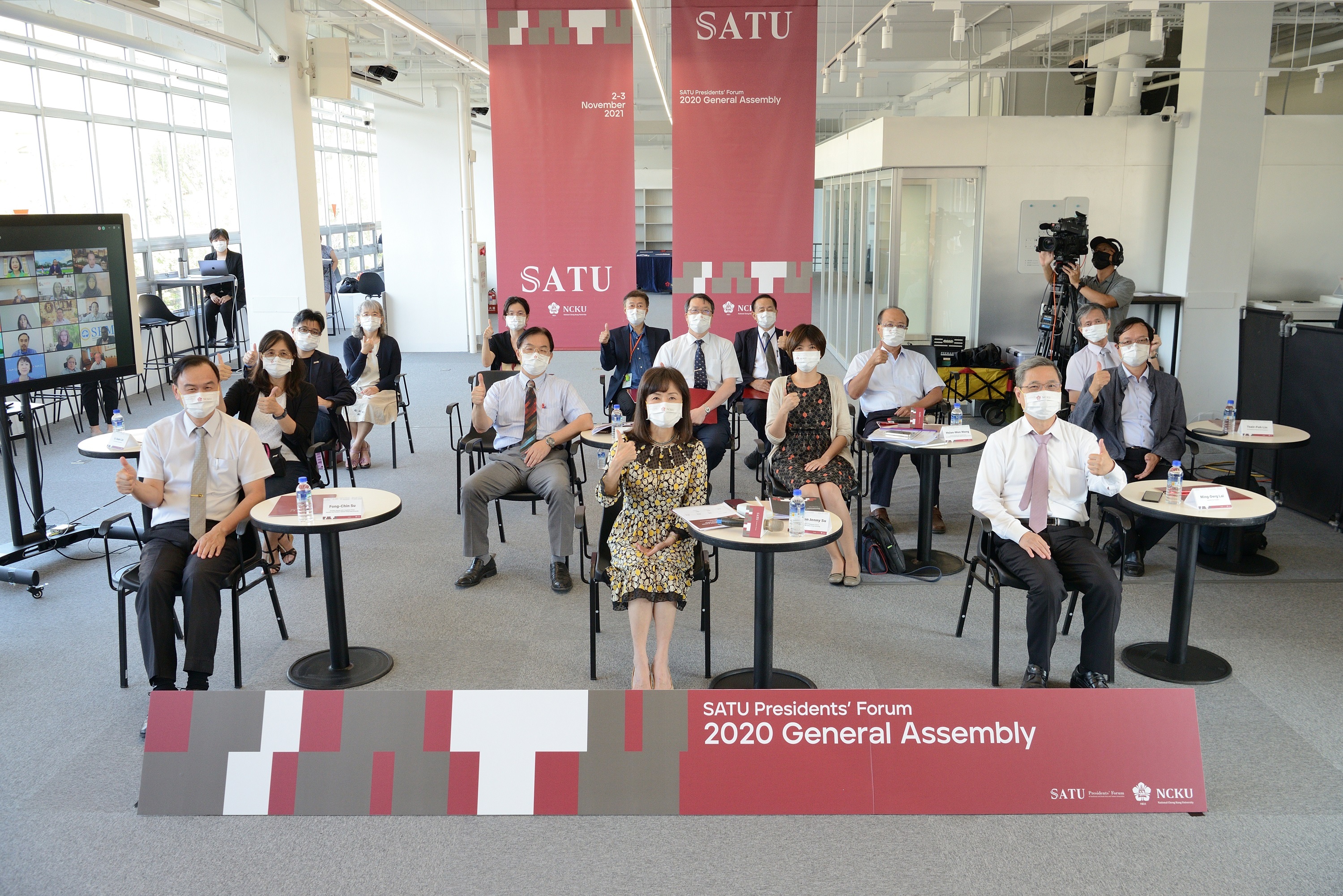Reflecting the Social Role of Universities: SATU Assembly Discusses What Higher Education Can Do About COVID-19 and Climate Change
Written by Hsu Tsu-Yueh. Image credit to NCKU Office of International Affairs.

SATU serves as a platform for higher education partners to exchange ideas directly
The Presidents' Forum of Southeast Asia and Taiwan Universities (SATU President’s Forum) successfully held its General Assembly at National Cheng Kung University from November 2 to 3. The first SATU General Assembly in three years focuses on the theme “Forging Creative Pathways with International Education after the COVID-19 Pandemic – Utilizing Local Resources to Diversify Outreach and Innovation.” International educational partners discussed ways for higher education to contribute to global issues, featuring keynote speeches from Wendell Brase, Associate Chancellor for Sustainability of University of California, Irvine and Catherine Montgomery, Deputy Executive Dean, Global in the Faculty of Social Sciences and Health of University of Durham. The forum extended its discussions in sessions including “Environment and Sustainability,” “Health and Technology,” and “Digital Certification Development.”
Impacted by the COVID-19 pandemic, the biennial assembly originally planned for 2020 was postponed to this year. Yen-Yi Lee, Director General of the Department of International and Cross-strait Education of the Ministry of Education, expressed that the SATU forum is a great opportunity for international partners to share their expertise. The new possibilities emerging from the collaborations will be a leading factor in future operation and integration.
As the participating members turned on their video cameras at the beginning of the forum, Huey-Jen Jenny Su, Chairperson of SATU and President of NCKU, was filled with joy seeing partners and old friends again after three years. Su expressed that the global challenges lying ahead are complex and that the COVID-19 pandemic has revealed the necessity for cross-institutional cooperation to search for new solutions. In this time full of uncertainty, universities should take the bold step and reimagine what types of international education will be needed for the future. Higher education partners can directly exchange ideas in the SATU forum and look for new directions in the new era, realizing a better future together.
The first keynote speech of the forum was presented by Wendell Brase, Associate Chancellor for Sustainability of UCI, titled “Can Universities Play a Role in Creating a Sustainable Planet?” Observing from the COVID-19 pandemic and climate change issues, Wendell Brase expressed that humans are more vulnerable than we thought. In the face of these immense challenges, delayed responses cause tragic consequences, where many suffer or lose their lives.
The online forum gathers international universities and serves as an important platform for NCKU and higher education partners in Southeast and South Asia. Together, the partners reflect on contributions they can make when humans are facing difficulties. Wendell Brase pointed out that, as higher education institutions, universities are capable of teaching the lessons learnt from the pandemic, using international cooperation as a cornerstone to create new possibilities with scientific methods, technology, and educational energy.
“A global problem calls for global cooperation!” A single nation or continent cannot stop a pandemic or climate change, Wendell Brase urged for joint effort from everyone to strive for the better. As platforms for intellectual exchange, universities are responsible for cultivating future leaders, heighting social awareness, and coordinating stakeholders, to build a more sustainable future for the globe and the local community.
SATU was initiated in 2003, led by NCKU, inviting prestigious universities from Southeast and South Asia and Taiwan to build collaborative connections. Through academic and cultural exchange, fostering internationalization and promoting quality of education. SATU connects higher education partners to conduct joint research programs. At the same time, the members work to facilitate sustainability in economics, society and the environment. This year, there are 392 projects that are related to the UN Sustainable Development Goals. Since its establishment, the member count continues to grow. Currently there are 103 member universities from Brunei, India, Indonesia, Malaysia, the Philippines, Singapore, Taiwan, Thailand, and Vietnam.
Provider:
News Center
Date:
2021-11-03